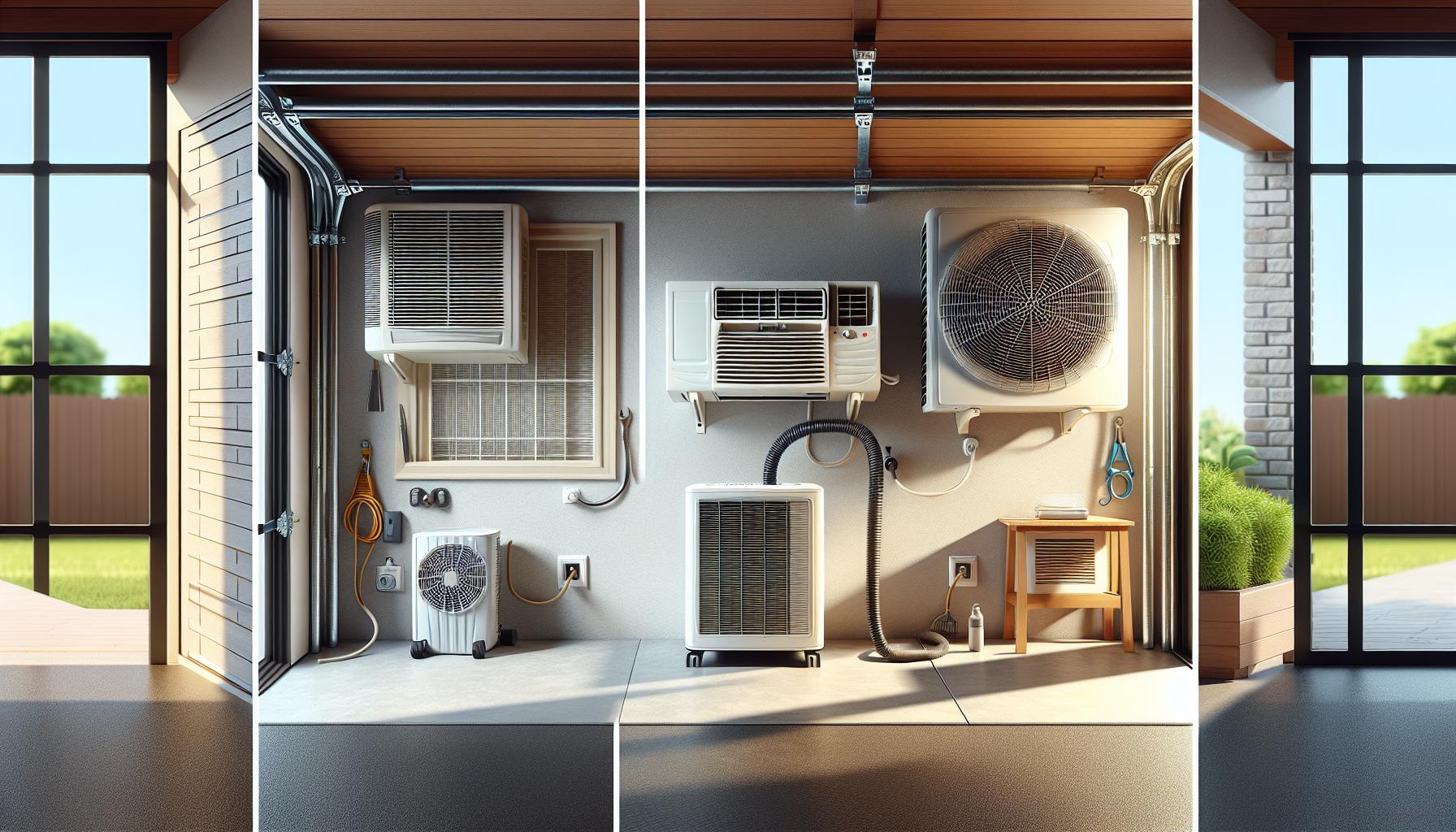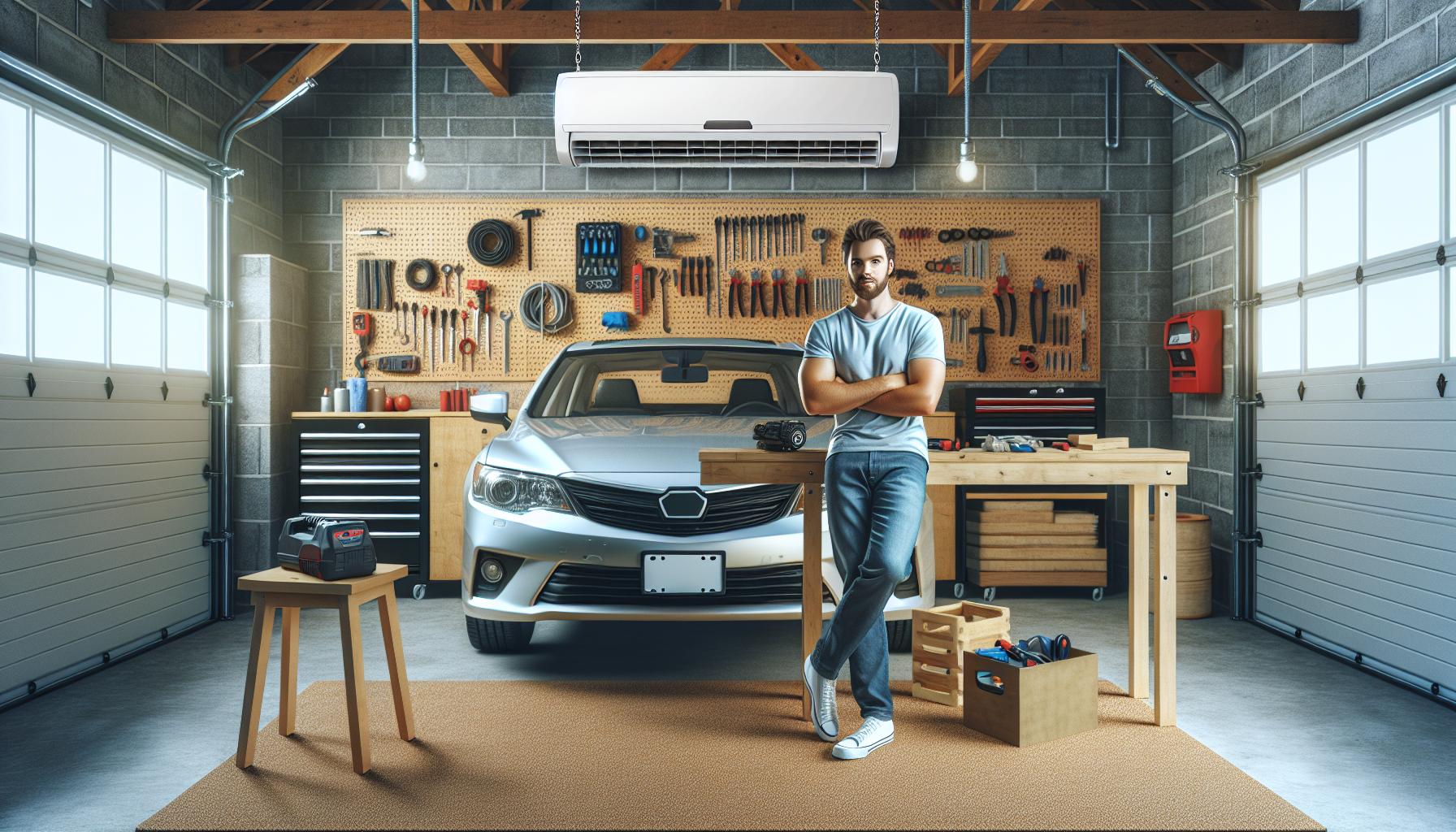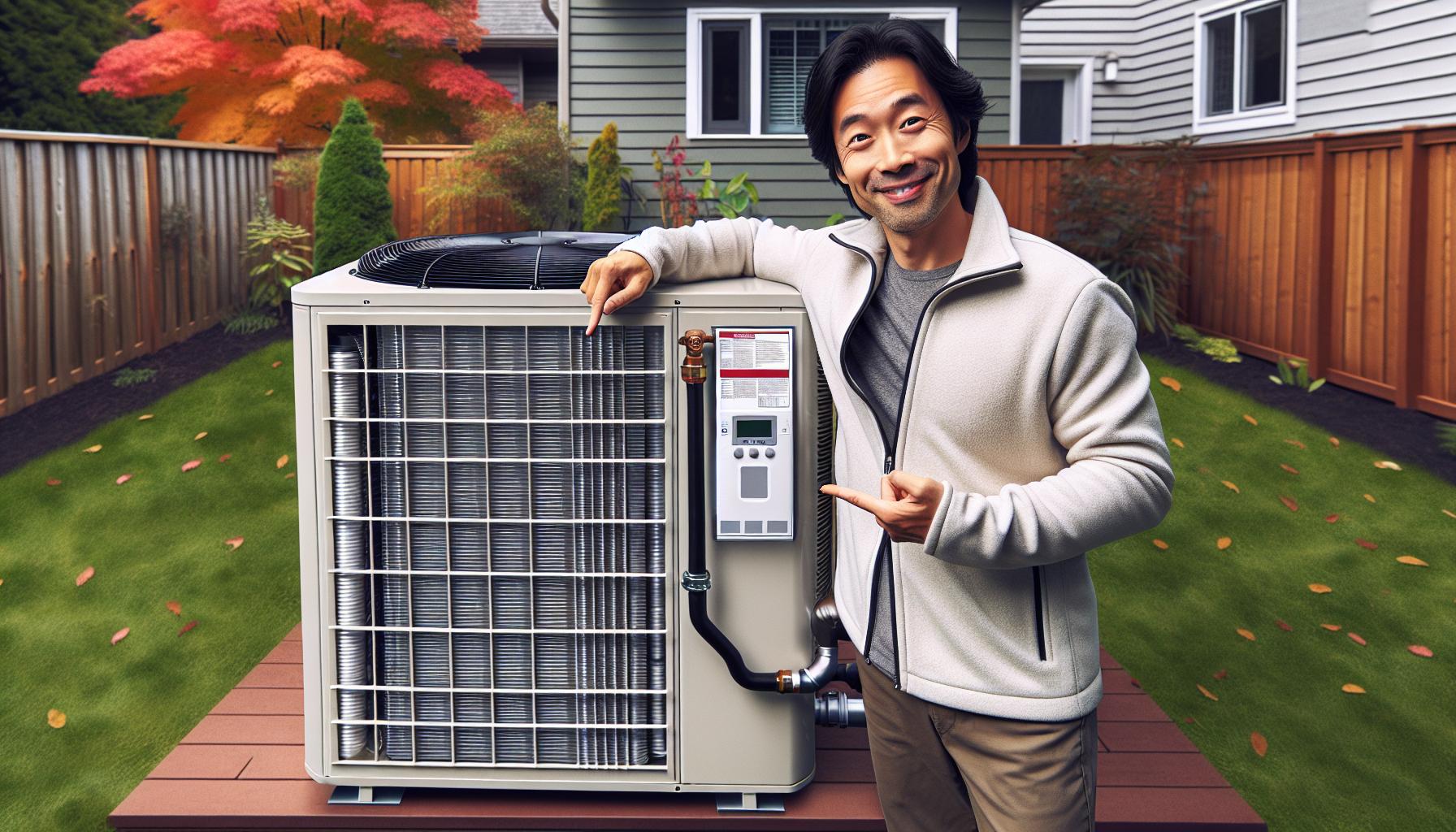Imagine stepping into your garage on a sweltering summer day and feeling a refreshing blast of cool air. With a garage air conditioner, this dream can become your reality. In this text, you’ll discover why installing an AC unit in your garage isn’t just a luxury but a game-changer for comfort and functionality.
We’ll explore the benefits of garage AC, from creating a more pleasant workspace to protecting your tools and stored items from extreme temperatures. You’ll also find practical tips on choosing the right type of air conditioner for your garage, ensuring you make an well-informed choice that suits your needs.
By the end of this read, you’ll understand how a garage AC can transform your space into a comfortable, versatile environment, making it a valuable addition to your home.
Why You Need A Garage AC
Installing a garage air conditioner offers numerous benefits, making it a valuable investment for homeowners.
Comfort and Productivity
A garage AC helps maintain a comfortable temperature, especially during hot summer months. This is crucial if you use your garage as a workshop or for hobbies. High temperatures can make it unbearable to work, reducing your productivity. With a garage AC, you can stay cool and focused.
Energy Efficiency
Cooling your garage can reduce the overall energy consumption of your home’s main air conditioning system. Hot air from the garage can seep into connected rooms, causing the main AC to work harder. By keeping the garage cool, you help the main AC operate more efficiently, so saving on energy bills.
Protection of Vehicles and Equipment
Extreme temperatures can damage vehicles and equipment stored in the garage. High heat can cause materials to warp, batteries to drain, and fluids to evaporate. A garage AC helps maintain a stable environment, protecting your valuable assets.
Types Of Garage AC Units

Choosing the right air conditioning unit for your garage ensures a comfortable and efficient workspace. Several types of units cater to different needs and preferences.
Window AC Units
Window AC units fit into standard-sized windows with minimal installation. They eject hot air and condensation outside without needing ductwork. These units are compact and cost-effective but may not cool large garages effectively.
Portable AC Units
Portable AC units are easy to set up, requiring only a power outlet. They can be moved to different areas as needed. These units don’t block windows but may need a hose to vent hot air outside.
Split AC Units
Split AC units consist of an indoor unit and an outdoor compressor. They provide powerful cooling and operate quietly. These units require professional installation but don’t block windows or take up floor space.
Key Features To Consider
Choosing the right air conditioner for your garage involves evaluating several essential features to ensure the best performance and comfort.
Cooling Capacity
Cooling capacity must match your garage’s size. For example, a 12,000 BTU unit suits smaller garages, while an 18,000 BTU unit is better for larger spaces. Ceiling height and intended usage, such as a home gym, also affect the required cooling power.
Energy Efficiency
Energy efficiency impacts long-term operating costs. Look for units with high SEER (Seasonal Energy Efficiency Ratio) ratings. Models with energy-saving features, like programmable thermostats and sleep modes, can further reduce electricity bills.
Noise Levels
Noise levels are crucial, especially if you use the garage as a workspace. Opt for units with lower decibel ratings for quieter operation. Split AC units, known for their silent functioning, are ideal for maintaining a peaceful environment.
Installation Tips
Proper installation of your garage AC ensures optimal performance and efficiency. Follow these tips to get the most out of your air conditioning unit.
Finding The Right Spot
Assess your garage’s layout to determine the best location for the AC unit. Measure the total square footage to select the appropriate size. For example, a garage used as a workshop or gym requires a unit that can effectively cool the space.
Ensuring Proper Ventilation
Ensure the garage has adequate ventilation to prevent hot air build-up. Install vents or exhaust fans to help airflow. If using a portable AC, secure a venting kit to expel hot air outside efficiently.
Pros And Cons Of Garage AC Units
Selecting the right AC unit for your garage can greatly enhance its usability. Here’s a breakdown of the advantages and disadvantages of different types of garage AC units.
Advantages
- Energy Efficiency: Mini-split systems are highly energy-efficient, leading to significant electricity savings over time.
- No Ductwork Required: Ideal for garages without existing ductwork or windows, mini-splits simplify installation.
- Customizable Zoning: These units allow independent temperature control in different garage areas, enhancing comfort.
- Year-Round Comfort: They provide both cooling and heating, ensuring a comfortable environment throughout the year.
- Longer Lifespan: Mini-splits typically have a longer lifespan compared to conventional air conditioners.
- High Initial Cost: The purchase and installation of mini-split systems are more expensive than other AC units.
- Professional Installation Required: Mini-split systems usually require professional installation, adding to the overall expense.
- Maintenance Needs: Regular maintenance is needed to ensure optimal performance, which could incur additional costs.
- Aesthetic Impact: The indoor unit might affect the garage’s aesthetics, which could be a concern for some homeowners.
- Space Requirements: Mini-splits require wall space for installation, which might be a constraint in smaller garages.
Top Garage AC Models On The Market
Window Air Conditioners
- Frigidaire FFRA0511R1E: This model offers 5,000 BTU cooling capacity, suitable for small garages up to 150 sq. ft. It’s budget-friendly and easy to install. But, it requires a window for setup.
- LG LW8016ER: With 8,000 BTU, this unit can cool spaces up to 340 sq. ft. It features a 24-hour timer, multiple cooling modes, and an energy-saving option. Ideal for medium-sized garages.
Portable Air Conditioners
- Whynter ARC-14S: This dual-hose unit provides 14,000 BTU, effectively cooling large garages up to 500 sq. ft. It includes a built-in dehumidifier and a carbon air filter. It’s more expensive but highly efficient.
- Honeywell MN12CES: Offering 12,000 BTU, this model cools spaces up to 400 sq. ft. It features a sleek design, three cooling speeds, and a washable filter. Suitable for medium to large garages.
- Pioneer WYS012-17: This system offers 12,000 BTU with high energy efficiency and customizable zoning. It provides both heating and cooling, making it ideal for year-round use in garages up to 500 sq. ft.
- Mitsubishi MXZ-3C30NAHZ2: With 30,000 BTU, this unit can cool multiple zones or large garages. It boasts a high SEER rating, ensuring energy efficiency. Professional installation is required for optimal performance.
Conclusion
Investing in a garage AC unit can transform your garage into a more comfortable and functional space. Whether you use it as a workshop, gym, or storage area, maintaining a stable temperature is crucial for productivity and the protection of your belongings.
Choosing the right type of air conditioner, considering factors like cooling capacity, energy efficiency, and noise levels, ensures you get the best performance for your needs. With various options available, from compact window units to powerful split systems, you’re sure to find a solution that fits your garage’s requirements.
Proper installation and ventilation are key to maximising efficiency and longevity. By following the practical advice provided, you’ll create an optimal environment that enhances your home’s overall energy efficiency and safeguards your valuable assets.






